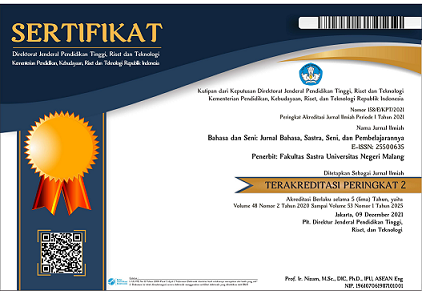THE UNDERCLASS IN THE WORKS OF CHARLES DICKENS AND ITS MARXIST THEMES
Abstract
In his novels, Dickens delivers important social messages through his empathetic characters living lives of misery, oppression, slavery, degradation, and exploitation under the so-called capitalistic system. These underclass people holler
their plight of injustice and crises of the actual social milieu. In the Marxist perspective, these multiple crises are embedded in themes of exploitation, class consciousness, and sacrifice and revolution. Hence, the realism disguised under literary devices could hopefully accomplish dual purposes, both as a means of provoking a new kind of "social consciousness" among the bourgeoisie and as a
means of raising the proletariat's class consciousness
their plight of injustice and crises of the actual social milieu. In the Marxist perspective, these multiple crises are embedded in themes of exploitation, class consciousness, and sacrifice and revolution. Hence, the realism disguised under literary devices could hopefully accomplish dual purposes, both as a means of provoking a new kind of "social consciousness" among the bourgeoisie and as a
means of raising the proletariat's class consciousness
Full Text:
PDFRefbacks
- There are currently no refbacks.

This work is licensed under a Creative Commons Attribution 4.0 International License.

Dear Sir/Madam
We appreciate your continued confidence and trust in Bahasa dan Seni: Jurnal Bahasa, Sastra, Seni, dan Pengajarannya (JBS). In order to enhance the service, readability, and quality of JBS publications, we will be transitioning to a new website, https://citeus.um.ac.id/jbs, in collaboration with Digital Commons (Elsevier) starting in July 2024.
Sincerely
Yusuf Hanafi
(Editor in chief)















2.png)